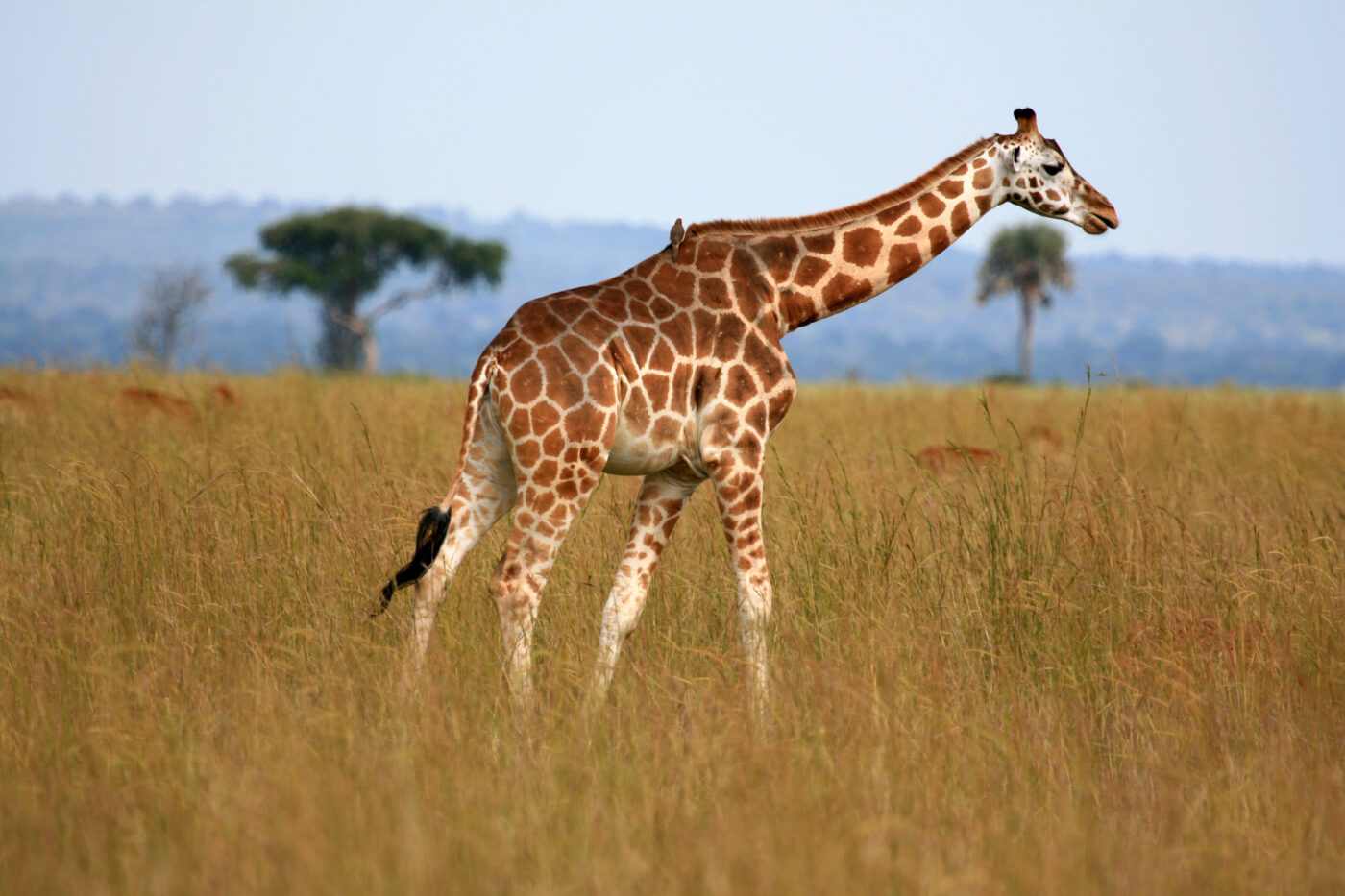Uganda is undoubtedly one of the most exciting and beautiful holiday destinations in the world. It offers a wild adventure that you will carry deep inside you for the rest of your life.
There is a good reason why Winston Churchill called Uganda the "Pearl of Africa" in 1907. In addition to the diverse range of activities that attract tourists and nature lovers from all over the world, it is one of the most biologically diverse countries on the planet. From friendly locals, to national parks and waterfalls, to snow-capped mountain peaks and rainforests. Africa can be very inhospitable, but Ugandans are friendly to just about any foreigner. Most tourists visit Uganda to admire wild animals such as mountain gorillas and orangutans.
When to Uganda?
The best time to visit Uganda is during the dry seasons: between December and February and between June and August. At that time, the conditions are particularly good for hiking, because if you want to see mountain gorillas, you will also have to do quite a bit of hiking. Even between February and March, wildlife watching in national parks is good.
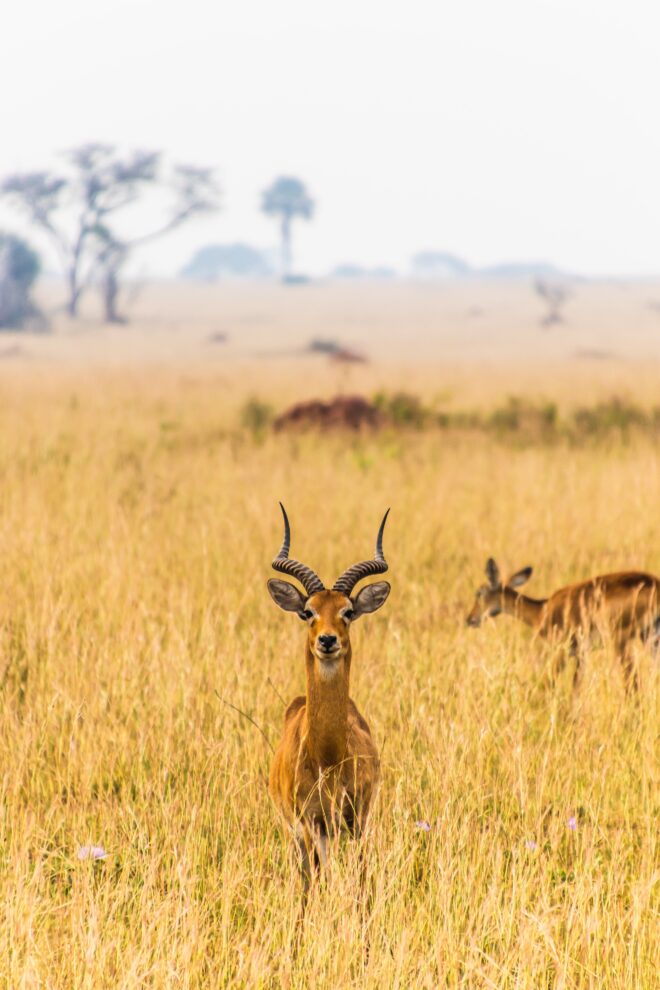
What should I see in Uganda?
The most common reason that attracts tourists to Uganda is contact with primates. That's why you shouldn't leave without going on a trek where you can meet mountain gorillas. If you're looking for an adventure, you won't find a better one! Bwindi National Park offers the best opportunities to get to know these majestic primates. Only a handful of people get to spend time with wild mountain gorillas in their natural habitat, as there are less than a thousand left due to human cruelty. Rhinos are also endangered.
Due to poaching (the last wild rhinoceros in the country was killed in 1982), you won't see rhinos in Uganda's national parks, av Ziwa Rhino Sanctuary several white rhinos live happily. The sanctuary was founded in 2005 with the aim of reintroducing rhinos to Uganda. The profit from visitors is also intended for the breeding program and possible release into the wild.
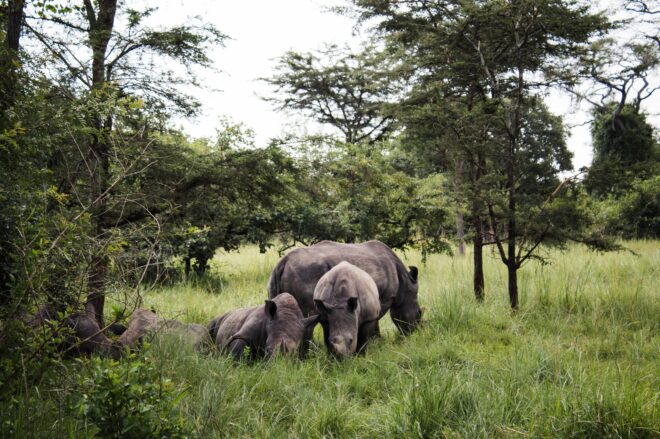
Nature lovers will also be delighted to go canoeing on Lake Bunyonyi. This is considered the second deepest lake in Africa and is one of the country's greatest natural treasures. The lake is surrounded by lush, terraced hills, and scattered across the lake are 29 islands of various shapes and sizes. The word bunyonyi actually means 'birds' in the local language, which is the proper name for this place as the area is home to many feathered species. Also, don't forget your swimsuit.
Lake Bunyonyi is known as one of the few lakes in Uganda free of bilharzia (a common parasite found in southern Africa), making its waters safe for swimming. Want to see even more animal species? Go on safari in Queen Elizabeth National Park. It is the most popular tourist attraction in Uganda, as it is home to as many as 96 species of mammals, including lions, buffaloes, warthogs, hippos, crocodiles and elephants. What's more, you can see lions climbing trees in the park. But no one knows for sure why a handful of lion populations in Uganda and Tanzania climb trees while their "brethren" elsewhere in Africa do not. Some people think they climb trees to avoid cc fly bites. Others believe that in this way they escape the heat at the ground.
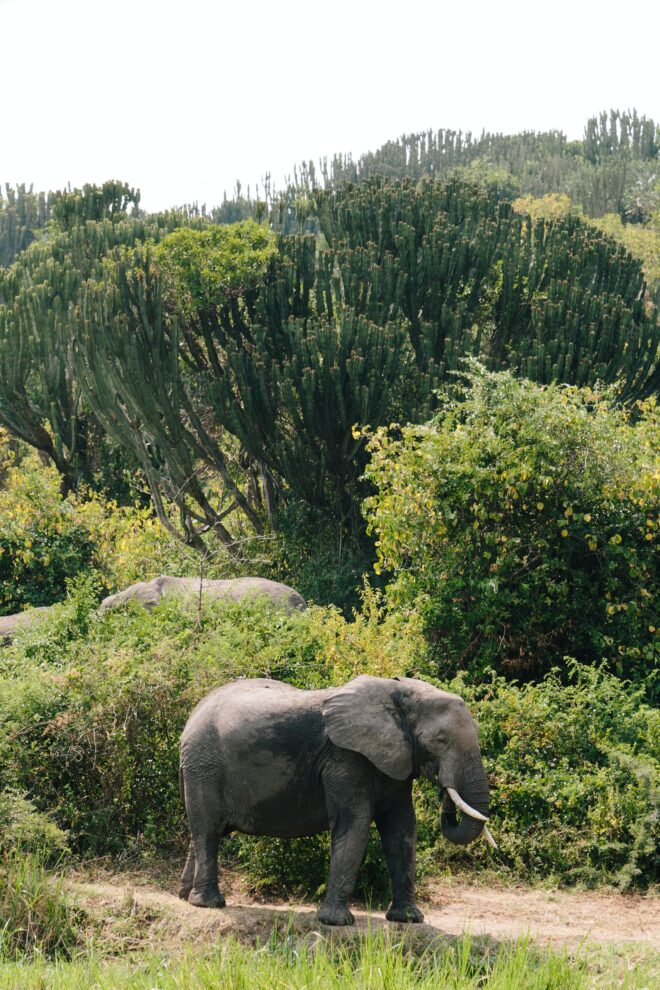
But this is far from the end of socializing with animals. In the Kibale Forest National Park, you can admire chimpanzees (there are more than 1,500 of them) playing pranks in the trees. Kibale Forest is located in the western part of Uganda near the Queen Elizabeth National Park. Kibale National Park is considered the primate capital of Africa, as it is home to 12 other species of primates in addition to chimpanzees, including blue monkeys and baboons. Want to check out a more urban side of Uganda?
To the northeast of Entebbe is the capital Kampala, a dynamic and attractive city with a rich and colorful history. If you have enough time, visit the Kasubi Tombs, the resting place of the four kings of Buganda, a UNESCO World Heritage Site. But don't overlook the varied nightlife, which is best visited with an experienced guide.
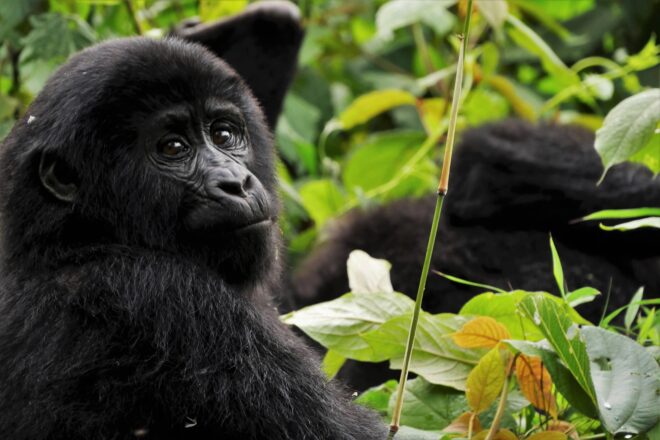
How to explore Uganda?
If you want to travel completely independently, it is best to rent a private car. A 4×4 vehicle is recommended, as many roads are in poor condition, and a car will also come in handy in national parks. If you do not have much experience with African traffic, it is better to consider hiring a driver who will take you safely to your destinations. If you don't consider renting a car, you will rely mainly on taxis and motorbikes in the cities, Uber also operates in Kampala. For trips between cities and longer distances, it makes the most sense to use crowded buses, and flying is even simpler.
How much is a plane ticket to Uganda?
With Brussels Airline, you can fly from Munich to Entebbe from 395 euros. You can search for flight tickets according to your vacation date HERE.
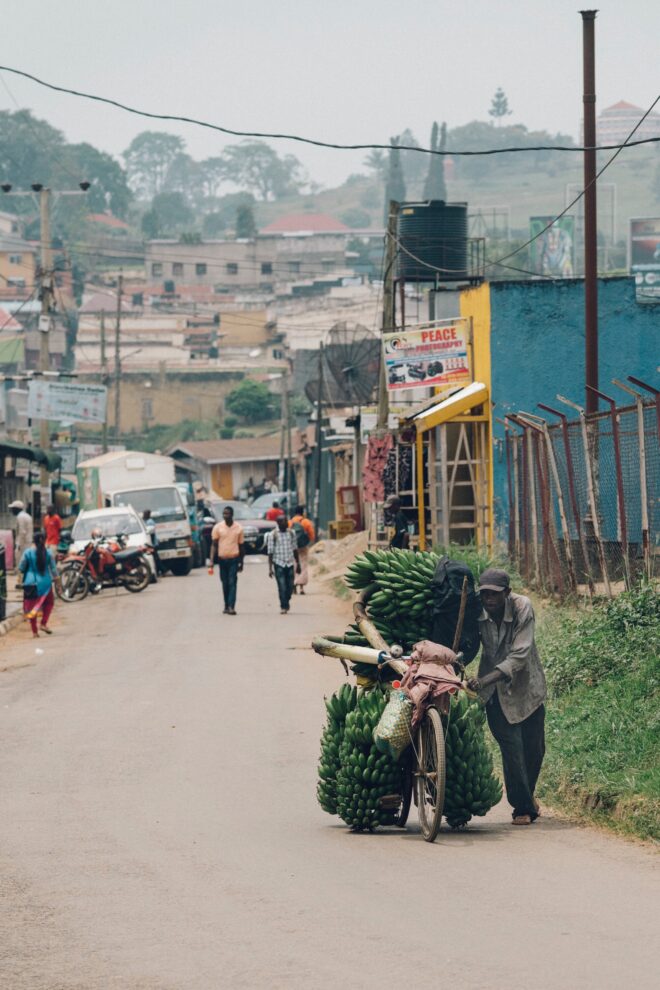
Covid-19 restrictions in Uganda
There are currently no travel restrictions or special instructions for Uganda due to the outbreak of the new coronavirus. Yellow fever vaccination is required to enter the country, so tourists must obtain an international yellow vaccination card. Vaccination against hepatitis A and droplet meningitis is also recommended. Check all current information about Covid-19 restrictions HERE.
Accommodation in Uganda
Millennium Terrace Hotel
In Kampala, a few kilometers away from the Independence Monument, there is a rather lively hotel - Millennium Terrace. It offers a beautiful panoramic terrace, where concerts and events are held in the evenings. In the mornings, they spoil you with a buffet breakfast.
Rushaga Gorilla Lodge
Rushaga Gorilla Lodge is located in Bugambira, near the starting point for trekking. It provides guests with internet access, as well as a lush green garden and terrace. An English breakfast is served in the mornings.



